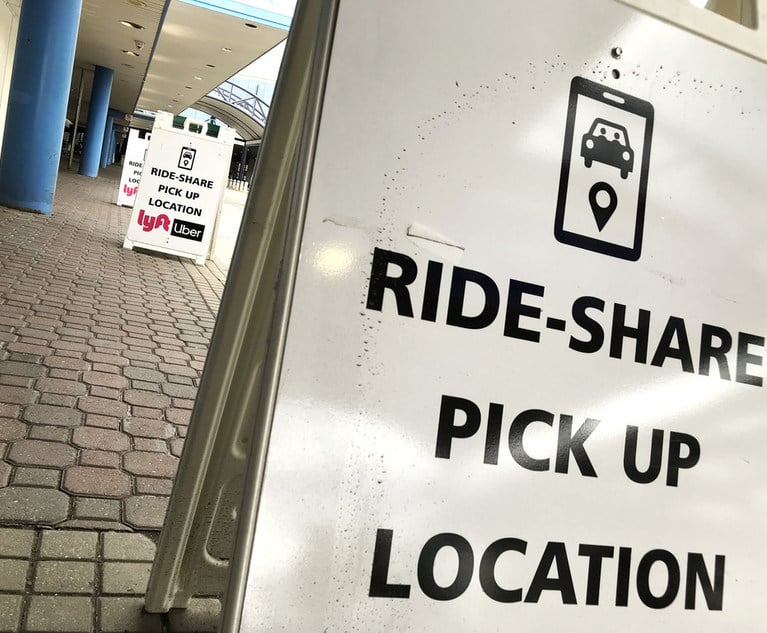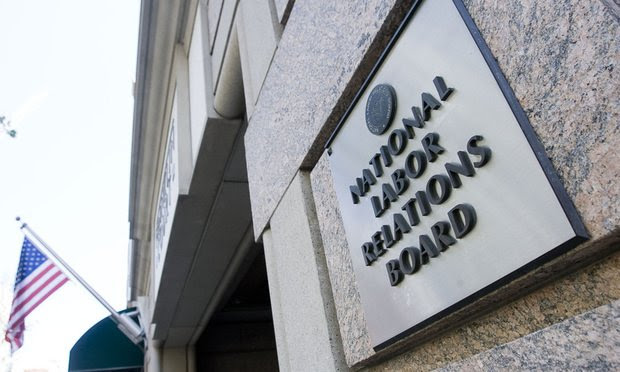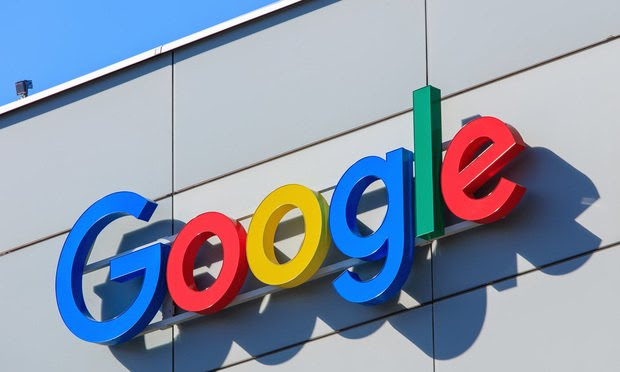Labor of Law: What Cases & Issues Are You Watching? | Predictions for 2019 | Federal Works Are Suing Over Shutdown
We've got a roundup of some of the big issues in play in the new year—as the U.S. Supreme Court is poised to decide whether to take up LGBT workplace discrimination issues, and a major pay-equity case. Plus: scroll down for Who Got the Work, and notable moves. Happy new year -- and thanks for reading Labor of Law.
January 03, 2019 at 12:00 PM
7 minute read
Welcome to Labor of Law. Happy New Year, and welcome back old readers and those who are newly joining us this year. I hope everyone had a good holiday break. Did you see the D.C. Circuit's big joint-employer decision just a few days ago? That ruling will get lots of attention in the new year, as will disputes about pay-equity and LGBT anti-discrimination rights in the workplace. Stay tuned—the justices have a lot on their plate at the Jan. 4 private conference.
>> I'm Erin Mulvaney in Washington, covering labor and employment from the Swamp to Silicon Valley. Follow this weekly newsletter for the latest analysis and happenings. If you have a story idea, feedback or just want to say hi, I'm at [email protected] and on Twitter @erinmulvaney.
What We're Watching in 2019
Here's a roundup of some of the big issues and case we're tracking in the new year.
>> Pay equality. Pay equity litigation flourished in 2018, and we can expect more of the same in the new year. We could soon learn whether the U.S. Supreme Court will take up a major pay-equity dispute. The justices' Jan. 4, 2019, conference includes Yovino v. Rizo, the Ninth Circuit case that said employers are barred from using prior salary history to justify paying men and women differently for similar jobs. A team from Jones Day represents the California school district that's trying to reverse the Ninth Circuit's decision. Business advocates have lined up on the district's side as amicus parties.
>> LGBT discrimination in the workplace We'll soon know if the Supreme Court will take up the question of whether Title VII should be expanded to include sexual orientation and gender identity. It was a hot topic last year, and the courts are divided. The U.S. Justice Department has lined up against the EEOC, which has advocated for broad protections for gay and lesbian workers. The LGBT workplace cases on the justices' Jan. 4 conference are R.G. and G.R. Harris Funeral Home v. EEOC, Altitude Express v. Zarda, and Bostock v. Clayton County, Georgia.
>> Joint employer. The rulemaking process is moving forward at the NLRB to determine what test should be used to designate one company a “joint employer.” Business advocates fumed over the expanded Obama-era definition, but the NLRB's Trump-appointed nominees were not able to quickly undo those rules. The landscape just got a lot more muddy—at least in the eyes of a dissenting judge on the U.S. Court of Appeals for the D.C. Circuit. The appeals court, divided 2-1, on Dec. 28 largely upheld the Obama-era NLRB's joint-employer standard, even as the board weighs adopting a more business-friendly approach.
>> What will happen at the EEOC? We were the first to report that Daniel Gade, a Trump nominee to the EEOC, had withdrawn his nomination to take a post teaching public policy at American University in the new year. The commission is starting the new year with only two members—another Trump nominee, Janet Dhillon, was still awaiting confirmation in the previous Congress. The EEOC is bracing for at least a short period, or longer, without a full slate of commissioners. “This means the potential of a shutdown of significant litigation,” said former EEOC general counsel David Lopez, now co-dean of Rutgers Law School. “The big cases, cases where there is a policy change.”
>> Arbitration. Plaintiffs lawyers have begun going to court to force gig companies like Uber and Lyft to agree to pay the costs of arbitration. “For employers, this might say be careful what you ask for and you might get it,” said plaintiffs lawyer Joseph Sellers of Cohen Milstein Sellers & Toll. “This could force Uber to reckon with the consequences of the arbitration clause, which means very substantial costs, that would have been avoided had it been pursued together.”
Meanwhile, we're watching the fallout from the Supreme Court's Epic Systems ruling from the past term. I recently spotlighted one Pennsylvania judge's broad concerns about the fairness of arbitration. “Even if individual arbitrators adhere to high standards, we ignore reality if we forget that private arbitration services are profit-making enterprises that advertise and compete for business,” U.S. District Judge Gerald McHugh Jr. wrote.
Who Got the Work
>> Google Inc. has settled an age-bias suit in California brought by an unsuccessful job candidate who claimed in a collective action that the technology company discriminated against applicants over the age of 40. A team from Kotchen & Low. Google was represented by a team from Ogletree, Deakins, Nash, Smoak & Stewart.
>> A federal appeals court has reinstated a whistleblower's claim he was fired by United Airlines after he complained about the company failing to properly perform repair work on U.S. Air Force cargo planes. William Norton of Motley Rice argued for the whistleblower, and Keith Harrison of Crowell & Moring represented the airline. Read the Fourth Circuit's ruling here.
>> The United Parcel Service, Inc. has agreed to pay $4.9 million to settle an EEOC class discrimination suit that claimed the company did not accommodate certain religious practices as required by federal law. UPS was represented by Wendy Johnson Lario of Greenberg Traurig in Florham Park, New Jersey.
>> ”A Seattle law intended to increase low-wage hotel workers' health care benefits and mandate additional safety and job protections is dead, at least for now,” Bloomberg Law reports. Davis Wright Tremaine represented the American Hotel & Lodging Association, Seattle Hotel Association and Washington Hospitality Association. Read the Washington state appeals court decision here.
>> A Pennsylvania public defender has won nearly $225,000 over claims that a county's chief public defender discriminated against him due to his age. Marc Weinstein in Pennsylvania and Ralph Lamar in Denver represented plaintiff Dennis Caglia. Attorney Brian Phillips of the Montgomery County Solicitor's Office represented the county.
Notable Moves
>> Jackson Lewis P.C. has hired Susan Zoeller has joined the firm's Indianapolis office as principal. Zoeller joins the firm from Quarles & Brady and has more than 20 years of employment law experience.
>> Outten & Golden has hired 10 new associates, including Hannah Cole-Chu and Pooja Shethji in D.C.; Maya Jumper, Aliaksandra Ramanenka, Cody Yorke and Aliaksandra Ramanenkain New York; and Zoe DeGeer, Adam Koshkin and Molly Frandsen in San Francisco.
Around the Water Cooler…
>> “In the not-so-distant future, machine learning may help civil-rights agencies predict who could face workplace discrimination. Samuel Christopher Haffer, the first chief data officer hired by the Equal Employment Opportunity Commission, said his goal is to create a 'distant early warning system.'” [Bloomberg Law]
>> Experts on workplace tech, compensation and other issues make predictions for the new year, including: the wage gap between old and new workers increases; greater demands for the security of personal data; and email will continue its demise. [The Washington Post]
>> “Because of the peculiarities of the federal budget process, this shutdown has not hit the nation's employers as hard as prior shutdown events,” according to a post by employment law firm Fisher Phillips. [Corporate Counsel]
>> Paul Secunda, a well-known labor and employment expert, has been removed from the classroom at Marquette University Law School amid allegations of an inappropriate relationship with a student, my colleague Karen Sloan reports. Secunda said in a statement through his lawyer Jennifer Walther: “I cannot stand by idly in the face of what I believe to be an injustice. I have confidence in the process Marquette and the faculty have established to protect tenured professors in these circumstances, and believe I will clear my name at the end.” [Law.com]
>> A federal labor union has sued the United States government for failing to pay “essential” workers during a government shutdown that has stretched into a second week with no end in sight. [Law.com]
This content has been archived. It is available through our partners, LexisNexis® and Bloomberg Law.
To view this content, please continue to their sites.
Not a Lexis Subscriber?
Subscribe Now
Not a Bloomberg Law Subscriber?
Subscribe Now
NOT FOR REPRINT
© 2025 ALM Global, LLC, All Rights Reserved. Request academic re-use from www.copyright.com. All other uses, submit a request to [email protected]. For more information visit Asset & Logo Licensing.
You Might Like
View All
Labor of Law: As Workers Suffer With Long Covid, Employers May Rethink Accommodations for Other Disabilities

Labor of Law: Federal Noncompete Ban Would Be Far From Last Word on Issue

Labor of Law: New Federal Rule Could Upend State Efforts to Count Ride-Share Drivers as Contractors

Labor of Law: Employer Statements on Abortion Could Spur Discrimination, Hostile Work Environment Claims
Trending Stories
- 1'It's Not Going to Be Pretty': PayPal, Capital One Face Novel Class Actions Over 'Poaching' Commissions Owed Influencers
- 211th Circuit Rejects Trump's Emergency Request as DOJ Prepares to Release Special Counsel's Final Report
- 3Supreme Court Takes Up Challenge to ACA Task Force
- 4'Tragedy of Unspeakable Proportions:' Could Edison, DWP, Face Lawsuits Over LA Wildfires?
- 5Meta Pulls Plug on DEI Programs
Who Got The Work
Michael G. Bongiorno, Andrew Scott Dulberg and Elizabeth E. Driscoll from Wilmer Cutler Pickering Hale and Dorr have stepped in to represent Symbotic Inc., an A.I.-enabled technology platform that focuses on increasing supply chain efficiency, and other defendants in a pending shareholder derivative lawsuit. The case, filed Oct. 2 in Massachusetts District Court by the Brown Law Firm on behalf of Stephen Austen, accuses certain officers and directors of misleading investors in regard to Symbotic's potential for margin growth by failing to disclose that the company was not equipped to timely deploy its systems or manage expenses through project delays. The case, assigned to U.S. District Judge Nathaniel M. Gorton, is 1:24-cv-12522, Austen v. Cohen et al.
Who Got The Work
Edmund Polubinski and Marie Killmond of Davis Polk & Wardwell have entered appearances for data platform software development company MongoDB and other defendants in a pending shareholder derivative lawsuit. The action, filed Oct. 7 in New York Southern District Court by the Brown Law Firm, accuses the company's directors and/or officers of falsely expressing confidence in the company’s restructuring of its sales incentive plan and downplaying the severity of decreases in its upfront commitments. The case is 1:24-cv-07594, Roy v. Ittycheria et al.
Who Got The Work
Amy O. Bruchs and Kurt F. Ellison of Michael Best & Friedrich have entered appearances for Epic Systems Corp. in a pending employment discrimination lawsuit. The suit was filed Sept. 7 in Wisconsin Western District Court by Levine Eisberner LLC and Siri & Glimstad on behalf of a project manager who claims that he was wrongfully terminated after applying for a religious exemption to the defendant's COVID-19 vaccine mandate. The case, assigned to U.S. Magistrate Judge Anita Marie Boor, is 3:24-cv-00630, Secker, Nathan v. Epic Systems Corporation.
Who Got The Work
David X. Sullivan, Thomas J. Finn and Gregory A. Hall from McCarter & English have entered appearances for Sunrun Installation Services in a pending civil rights lawsuit. The complaint was filed Sept. 4 in Connecticut District Court by attorney Robert M. Berke on behalf of former employee George Edward Steins, who was arrested and charged with employing an unregistered home improvement salesperson. The complaint alleges that had Sunrun informed the Connecticut Department of Consumer Protection that the plaintiff's employment had ended in 2017 and that he no longer held Sunrun's home improvement contractor license, he would not have been hit with charges, which were dismissed in May 2024. The case, assigned to U.S. District Judge Jeffrey A. Meyer, is 3:24-cv-01423, Steins v. Sunrun, Inc. et al.
Who Got The Work
Greenberg Traurig shareholder Joshua L. Raskin has entered an appearance for boohoo.com UK Ltd. in a pending patent infringement lawsuit. The suit, filed Sept. 3 in Texas Eastern District Court by Rozier Hardt McDonough on behalf of Alto Dynamics, asserts five patents related to an online shopping platform. The case, assigned to U.S. District Judge Rodney Gilstrap, is 2:24-cv-00719, Alto Dynamics, LLC v. boohoo.com UK Limited.
Featured Firms
Law Offices of Gary Martin Hays & Associates, P.C.
(470) 294-1674
Law Offices of Mark E. Salomone
(857) 444-6468
Smith & Hassler
(713) 739-1250











